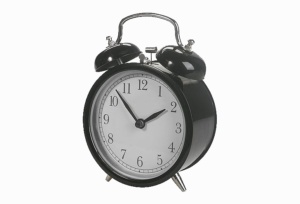
From New Life Outlook Fibromyalgia.
Do you suffer from fibromyalgia insomnia, tossing and turning at night because of pain or discomfort? If so, you are not alone. It is estimated that two to 10 percent of the population suffers from fibromyalgia. Of those, three-quarters have sleep complaints and disturbances.
The most common is a feeling of non-refreshing or non-restorative sleep. Simply stated, you wake up tired, go through your day tired, and go to bed to try to sleep but are often too tired to sleep, no matter how many hours you sleep at night.
What Causes Fibromyalgia Insomnia and Sleep Problems?
Insomnia, defined as an inability to either fall asleep or stay asleep, is literally the fibro sufferer’s worst nightmare — one that they experience while awake rather than asleep. People with fibromyalgia show less deep sleep, increased lighter stages of sleep, and more frequent arousals during the night than healthy individuals. They also have trouble falling asleep and waking up too early in the morning.
Research shows that with fibromyalgia, there is an automatic arousal in the brain during sleep. Frequent disruptions to sleep prevent important restorative processes from occurring and likely hinder the production of growth hormone as well. Without restorative sleep and the surge of growth hormone, muscles may not heal and neurotransmitters (like serotonin) are not replenished.
The bottom line is that your body is never fully able to process all that is needed for healing and restoration, so you are in a perpetual “catching up” mode due to the depletion of the vital growth hormones and mood boosters. The result of this depletion is that the body can’t recuperate from the day’s stresses, which overwhelms the system, creating a great sensitivity to pain.
Contributing Factors to Poor Sleep and Insomnia
- Pain. Sleep disturbances play an important role in the exacerbation of pain and other troubling symptoms reported by patients with fibromyalgia. Lack of sleep produces more pain, and increased pain contributes to lack of sleep.
- Restless leg syndrome. This is a disorder of the part of the nervous system that affects the legs and causes an urge to move them. Because it usually interferes with sleep, it also is considered a sleep disorder.
- Sleep apnea and upper airway resistance syndrome. In untreated sleep apnea, breathing is briefly interrupted or becomes very shallow during sleep. These breathing pauses typically last between 10 to 20 seconds and can occur up to hundreds of times a night, jolting you out of your natural sleep rhythm. As a consequence, you spend more time in light sleep and less time in deep, restorative sleep.
- Depression. About 20 percent of fibromyalgia patients also are diagnosed with depression or anxiety disorder, which is a contributing factor to poor sleep.
- Hot flashes and night sweats. This is very common for fibromyalgia patients; it can cause extreme discomfort and keep you up all night.
How Is Fibromyalgia Insomnia Treated?
Treating insomnia with cognitive behavioral therapy and good sleep hygiene has been shown to improve symptoms of fibromyalgia. Medications may give short-term relief and results, but sleeping pills and medication alone are not the long-term answer for those dealing with sleep disorders.
If you are using a fibromyalgia-approved sleep medication, research the product for its benefits and side effects, as some can actually hinder restful sleep. Medications may help by sedating you, but after you wake up, their effects may persist.
Rather than a therapy that works by sedation, it would be better to find a treatment that actually improves the quality and restorative nature of your sleep.
Practicing Good Sleep Hygiene
There are small changes you can make to your sleep environment and routine that may be beneficial towards better sleep:
- Limit noise, light, and other stimuli.
- Keep the temperature and bedding comfortable.
- Do something relaxing before bed, like listening to calming music or reading.
- Turn the alarm clock so it’s not facing you.
- Take a warm bath in the evening.
- Do yoga, stretching exercises or meditate to relax and relieve tension.
- Avoid caffeine (including teas, soda, and chocolate) and alcohol at night.
- If you are still having trouble getting to sleep, get up and do something restful in another room.
Good sleep doesn’t start with your nightly routine, but what you do throughout the day towards that goal of deep sleep. Developing a consistent routine will be helpful in your quest for restful, sound sleep.